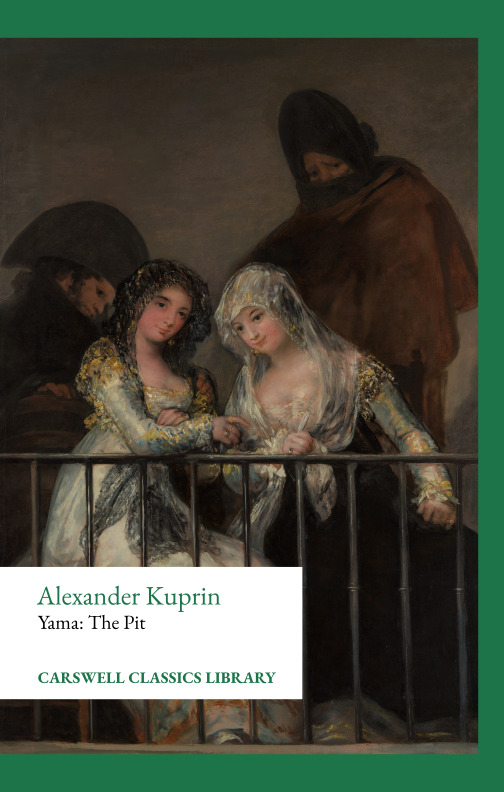“There remains a dry profession, a contract, an agreement, a well-nigh honest petty trade, no better, no worse than, say, the trade in groceries. Do you understand, gentlemen, that all the horror is in just this, that there is no horror! Bourgeois work days—and that is all.”
Originally published in instalments between 1909 and 1915, Alexander Kuprin’s Yama follows the affairs of a brothel owned by a woman named Anna Markovna. Throughout the text Kuprin provides an astonishing disclosure and condemnation of the evils of prostitution. On the release of it’s first instalment, Ivan Bunin told Kuprin, “in Moscow people talk of just one thing: The Pit.”
Despite the stir it caused in Russia at the time, it remained unknown in the Anglosphere until Bernard Guilbert Guerney’s 1922 translation, and even so has only garnered a cult following since. In spite of it’s relatively unknown status compared to other Russian literature of the early 20th century, Yama deserves a spot amongst the greats for it’s unique insight into the tragedy of prostitution in tsarist Russia, and certainly beyond to our modern era.
